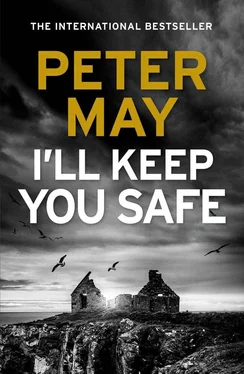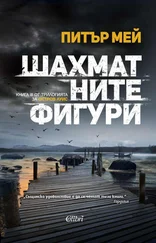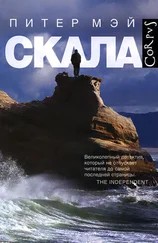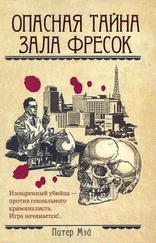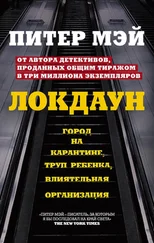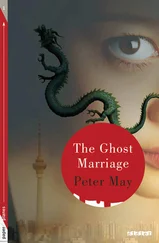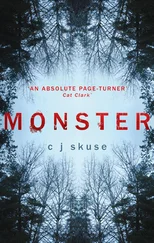A slow tear, like molten sadness, trickled its way down her pale cheek, and she turned, startled by the sudden realization that there was someone standing beside her.
Donald looked awkward. Embarrassed like all the others, but there was something else in his eyes that went beyond mourning or sympathy. He could not hold her gaze for long. ‘What news?’ he said.
Niamh frowned.
He clarified. ‘Of the investigation.’
‘Oh. That.’ She succumbed to indifference. What did it matter now? ‘None.’
He hesitated, then to her surprise wrapped protective fingers around her arm. ‘You know... if they haven’t caught anyone for it, it’s just possible that you could be at risk, too.’
She turned her head up to look at him, crinkling her brows in surprise. ‘Why do you say that?’ It seemed an extraordinary coincidence, coming the morning after someone had tried to kill her.
He shrugged. ‘Just worried about you.’ His freckles were even more striking than usual against the whiteness of his skin, and she saw that his eyes were watery and bloodshot. Perhaps he had not been sleeping. ‘What are your plans after the funeral?’ he asked.
‘I have no plans.’
He let go of her arm. ‘You shouldn’t be on your own, Niamh.’ Then, as if he had spoken out of turn, added quickly, ‘It’s an emotional time.’
‘Every minute since it happened has been an emotional time.’
He nodded, and she saw what seemed to her like a fleeting shadow of guilt cross his face. And, yet, what would Donald have to feel guilty about? Ruairidh was his wee brother, after all. Grief showed its face in many ways. She took and squeezed his hand, and succeeded only in increasing his discomfort.
It was impossible to say how many folk were crushed into the house for the brief service conducted by the minister. And there were many more outside, standing in the rain.
The minister himself was an elderly man. The wind had ruined the careful parting of what was left of wiry white hair, and then the rain had flattened it so that it stuck in fine wet curls to his forehead. He was tall and impossibly thin, and in spite of the strictness of the Free Church had always, to Niamh’s mind, presented the human face of his dour religion.
In the silence that filled the house, pervading every corner of it, Niamh listened to the intonation of his voice rather than his words. It was hard to find the vocabulary truly to express your feelings. People and religions fell back on platitudes and favourite biblical readings. But the heart spoke through the voice, and Niamh just closed her eyes to listen. Here was the man who had thrown the first handful of sand over Anndra’s coffin, read the same blessings, offered the same sympathies. Drawing no distinction between one and the other. Apportioning no blame. For he, at least, carried the certainty in his soul that only God knew the truth of what happened all those years ago, and that it was His justice that would prevail.
But his final words rang out loud and clear, bringing tears to almost every eye in the house. Song of Solomon 4:6. So often read aloud at funerals, written in obituaries, carved on headstones. Gus am bris an latha agus an teich na sgàilean . Until the day breaks and the shadows flee away.
It was not until she got outside, drawing cold fresh air into her lungs, that it became apparent just how many people there were out here. Among the many she knew were others that she did not. Journalists, perhaps. A drone hovered high overhead and she realized that some TV news outlet, or freelancer, was filming the funeral for broadcast later in the day. She caught a glimpse of Lee Blunt, solemn and subdued, dressed all in black, and surrounded by so many of the famous faces of British fashion. Models and designers, photographers and fashion writers. Faces familiar around the world, turning up here for an island funeral, drawing stares of curiosity and wonder from awestruck locals. Such was the celebrity of Ranish Tweed, and Ruairidh’s renown, that people like these would travel the world to say their farewells.
Jacob Steiner tipped his hat towards Niamh as six men, Donald among them, carried the coffin out to the hearse. When the rear door closed on it, Ruairidh’s brother came to take her arm. ‘You come in the car with me,’ he said. ‘We can pick yours up later.’
She saw that her parents and Uilleam were standing among the mourners watching her, maintaining a discreet distance. She wondered why they had come after all. Perhaps to stop the gossips from whispering among themselves how her own family had failed to turn out for Ruairidh’s funeral. But she cut short the thought, even as it formed. And preferred, instead, to believe that for once maybe it was her father who had prevailed.
She sat in the front of the Audi with Donald. Ruairidh’s parents sat in the back. And they drove in silence down the hill behind the hearse. When they turned at the bridge, Niamh saw Seonag and her husband, and their two children, getting into their SUV to join the procession. For the briefest of moments their eyes met, before Seonag turned away to say something to her husband. And Donald accelerated up the hill on the main road towards the turn-off to Dalmore Beach, little more than half a mile away.
The car park at the beach was inadequate to accommodate all the vehicles in the procession, and most of them were forced to park in a line all the way up the hill, perched precariously on the verge, leaving the road clear for mourners to walk down to the cemetery.
The undertakers unlocked the door of a small concrete hut by the gate to slide out the bier on which the coffin would be carried. As well as half a dozen or more shovels to be taken to the grave for use by the family to fill it in afterwards.
Niamh could see where the grave had been dug at the far end of the cemetery, almost overlooking the beach, and only a few feet from where her brother lay.
Flowers and wreaths were carried from cars and laid by the gate, too many for the undertakers to carry to the grave themselves. And Niamh decided to break with convention. She stooped to gather up as many of the flowers as she could, and started off on the long walk through the cemetery herself. A lone figure. The coffin had not even been taken yet from the hearse. Others, who had no idea of the conventions, followed suit. Catwalk models in hopelessly inappropriate footwear, picking their precarious way across the uneven sandy soil, bearing bouquets and wreaths, like some procession of funereal fashionistas at a dark autumn collection. The coffin and all the male mourners followed on behind. A funeral the like of which had never before been seen on the island.
When Niamh reached the grave and looked back, she saw that Seonag was among the carriers of flowers. But that her mother, and Mrs Macfarlane, and many of the older women remained behind. Whatever else they might disagree upon, they remained punctilious in their adherence to the old ways.
The wind whipped the rain in off the sea, umbrellas abandoned or blown inside out. The gathering in black around the grave seemed drawn together in a collective huddle against the elements. But it was so exposed here that there was no protection to be had, and even the pages of the minister’s bible were stuck together by the wet, so that he had to peel them carefully apart to avoid tearing the delicate paper. And in an ultimate irony, his final words were lost in the roar of the sea and the howling of the wind, as if Nature herself were determined to have the last say.
When it was over, most of the mourners hurried off towards the shelter of their cars. Donald and several friends lifted the spades brought by the undertakers to start shovelling sand over the coffin, stooped by the weight of grief and sand and weather.
Читать дальше
